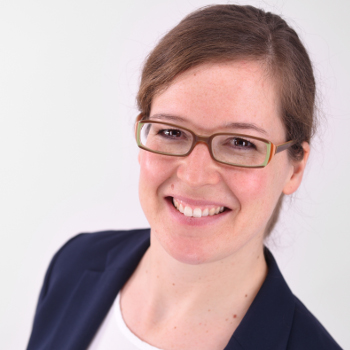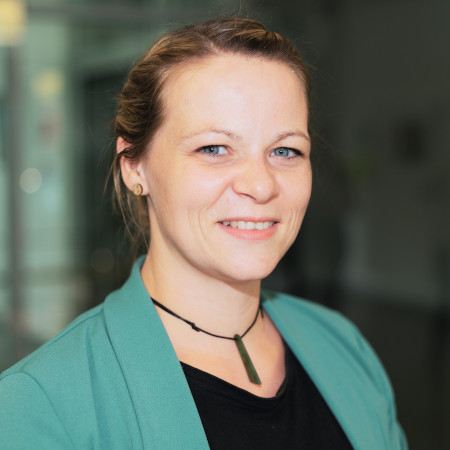Deciphering complex relationships
Ruth DelzeitProfession:
Agricultural Economist
Position:
Head of the Department "Environment and Natural Resources" at the Kiel Institute for the World Economy

Profession:
Agricultural Economist
Position:
Head of the Department "Environment and Natural Resources" at the Kiel Institute for the World Economy

In Kiel, Ruth Delzeit uses models that depict complex economic and environmental relationships to lay the foundations for important political decisions.
"Bio-based" sounds like a good thing to most people. However, regarding biofuels this has been the topic of heated discussions for many years now. Environmental economist Ruth Delzeit has been involved in this topic in one way or another since the beginning of her research career - and it has been a transformative experience, especially once she recognized how some politicians and journalists deal with research findings.
"I have always been very interested in the environment," says Delzeit, who now heads the "Environment and Natural Resources" research unit at the Kiel Institute for the World Economy (IfW). Studying geography was therefore an obvious choice. "It gave me a broad overview of many environmental topics," the researcher remembers. At the time, she focused on two topics: soil science and agricultural and environmental economics. She soon realized: "Environmental economics has greater social relevance."
Scholarships and accolades
During her studies, Delzeit went abroad via a German Academic Exchange Service (DAAD)-scholarship. In Canada, she dealt with landslides and evaluated the dangers for the Olympic location Vancouver. Yet, then and now, her many professional journeys induce a guilty conscience because of the CO2 emissions. "I always try to compensate for this elsewhere," says the environmentally conscious woman. "If you're aware of the many connections, you also think more about them in your private life." However, according to her, everyone should decide for themselves how they can contribute to sustainability.
During her work for her diploma thesis at the University of Bonn, another DAAD scholarship took the young scientist to Brazil, where she investigated the question of which sustainability criteria must be applied to the bioethanol production there in order to be able export it to Germany. At that time, the debate about biofuels had only just begun. "This was my first real research and it showed me how exciting scientific work is," says Delzeit.
As part of her doctoral thesis in agricultural economics, she subsequently examined the effects of German biogas production from maize on land use, taking into account transport distances and emissions. In 2009, Delzeit received an award for the best presentation of results from the Gesellschaft für Wirtschafts- und Sozialwissenschaften des Landbaues e.V.
Complex questions
After a joint project with the Kiel IfW, Delzeit was offered a position there. And in the spring of 2010, the researcher moved to Northern Germany. Here the questions and research topics expanded quickly: How does climate change affect land use and agricultural markets? Are there conflicting goals between food security and biodiversity? "It was not just about agriculture, but also about other sectors," emphasises the environmental economist. With her membership on the scientific advisory board of the Federal Ministry of Research's (BMBF's) Bioeconomic Monitoring and additional commissions for the OECD, the work of the Kiel-based researcher also gained a political component. Her research is also increasingly concerned with models that depict possible future scenarios and thus provide recommendations for action. "We are investigating, for example, what developmental conditions we need for policy measures that promote the bioeconomy to take effect," Delzeit explains. The researcher also coordinates the "BioNex" project, funded by the Federal Ministry of Education and Research, which deals with possible solutions for conflicting objectives in the use of biomass.
Inter- and transdisciplinary research
Delzeit considers it an advantage to have access to a broad knowledge base regarding many environmental issues due to her studies in geography. "The environmental economy is a very broad field. This requires that we work inter- and transdisciplinarily." In addition to economists, agricultural economists and plant researchers, who already belong to her team, Delzeit uses workshops to also include other interest groups and stake holders, such as federal ministries, NGOs and industry representatives. Their feedback is important in order to assess the practicability of the approaches and results. "The interest groups help us to understand what are important trends and drivers that we have to take into account for the models," Delzeit explains. "Then we explain how we want to integrate them into our model and finally, we develop the model."
It is important to Delzeit that their models are not black boxes for the users later on. "For the scenarios of our models, we always define very transparently which assumptions we make and why," explains the 37-year-old. Changes in assumptions lead to new scenarios. "This allows us to see at a glance the effects on parameter B of changing parameter A for a large number of complex correlations. We don't say: That's how it will be. But: If we assume this, that will happen." It is about understanding relationships and recognizing trends.
Regarding the everyday life of female researchers, Delzeit occasionally notices that research can still be very male-dominated. For young female colleagues, she therefore has an advice: "Don't hide and think for yourself, but sit at the table with others."
Author: Björn Lohmann/ Judith Reichel


